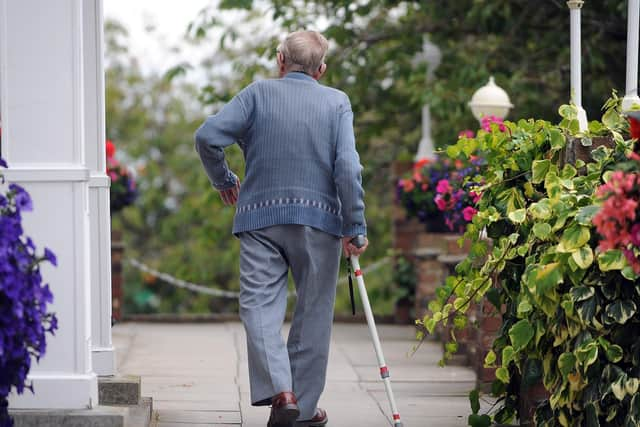How to remedy these pension injustices in 2022 – Ros Altmann


The actuarial analysis and the independent review by Baroness Neville-Rolfe could help to remedy some of the injustices in the current system, which penalises the poorest and those in failing health.
Vast differential in health across the country: Just raising state pension age on the basis of increasing average life expectancy fails to recognise the vast differentials in health of older people across the workforce.
Advertisement
Hide AdAdvertisement
Hide AdPoorest groups only stay healthy to around age 50 and less likely to have private pension: ONS analysis shows that the most deprived 10 per cent of the population tend only to stay healthy to their early 50s, with men and women in this poorest group only staying healthy on average to around age 52. These are also the people who are least likely to have much, if any, private pension.


Forcing them to keep waiting longer to start receiving their state pension, regardless of their health or length of National insurance record, will increase the social inequity of our state pension system.
Wealthiest stay healthy until around 70 and can draw on private provision early if needed: In contrast, the wealthiest 10 per cent have a healthy life expectancy which is now to more than age 70. For these groups, waiting longer to start their state pension is not much of a problem, especially as the better off groups are more likely to have private pensions or other things they can live on if they need to stop work sooner.
No recognition of people who genuinely can’t work: It seems strange that our state pension has completely failed to recognise the differentials in health and work ability between different groups.
Advertisement
Hide AdAdvertisement
Hide AdThere is no allowance to pay an early pension to those who genuinely cannot work, even if they have contributed for four or five decades. I believe it is necessary to cater for these people and consider allowing early access for some who need it.


Just raising state pension age is a blunt tool that hits the poorest: If the Government wants to control state pension costs, just raising state pension age is a blunt tool which will hit the poorest hard, while leaving the better off relatively unaffected.
What could be done? There are several options to consider when looking to address costs and sustainability.
The state pension system could factor in health status, so that those in poorest health could access some state pension from an earlier age, perhaps on an actually reduced basis.
Advertisement
Hide AdAdvertisement
Hide AdState pensions might also be paid out at an earlier age for people who have long contribution histories and can also demonstrate poorer health. Perhaps there could be a flexible band of ages, rather than just one starting age so people can get some money earlier if they need it.
The number of years to obtain a full pension could be increased to control costs in a different way. Currently only 35 years of National Insurance contributions are required for a full pension.
This is nowhere near a full working life. Those starting work at 16 will have reached 35 years at age and 51! Requiring 45 or 50 years for a full state pension could encourage longer working lives while also rewarding those who have paid in for more years.
Many of the older cohorts today, especially women, had no chance to accrue private pensions in their early career. These are the people who will bear the brunt first of any decision to accelerate state pension age rises, especially if in poor health.
Advertisement
Hide AdAdvertisement
Hide AdI do hope the review takes these needs into account and does not try to impose a ‘‘one size fits all’’ policy.
It is also important to address labour market issues that prevent later life working.
Facilitating later life working, perhaps part time work before full time retirement, could help ensure people with physically demanding roles could move to less strenuous work as they enter their 50s or 60s.
But there will still be many who genuinely cannot work and who should not be left languishing longer on out of work benefits, just because average life expectancy is rising.
Advertisement
Hide AdAdvertisement
Hide AdBaroness Ros Altmann is a Tory peer and former pensions minister.
Support The Yorkshire Post and become a subscriber today. Your subscription will help us to continue to bring quality news to the people of Yorkshire. In return, you’ll see fewer ads on site, get free access to our app, receive exclusive members-only offers and access to all premium content and columns. Click here to subscribe.
Comment Guidelines
National World encourages reader discussion on our stories. User feedback, insights and back-and-forth exchanges add a rich layer of context to reporting. Please review our Community Guidelines before commenting.